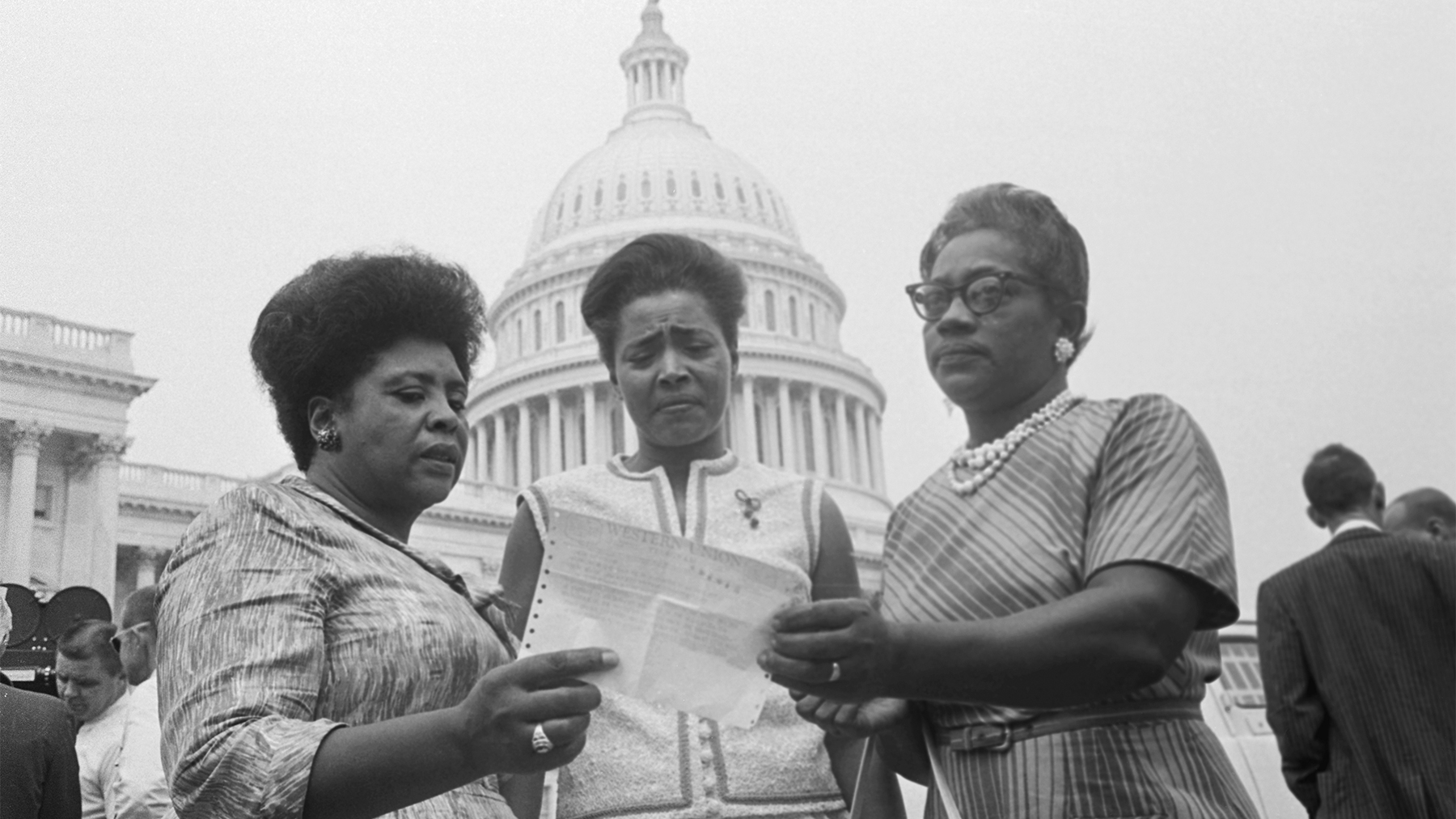Last week, members of the U.S. House of Representatives wore yellow roses to commemorate the passage of the 19th Amendment in the lower chamber on May 21, 1919.
June 4 marks the 100th anniversary of the passage of the 19th Amendment by the two-thirds Congressional majority – an action that sent the amendment granting women the right to vote to the states for ratification.
But we must not forget that while the 19th Amendment was momentous, the reality was that it did not grant the franchise to all women in the United States. In practice, it ensured the franchise for primarily white, middle and upper class women; women of color largely did not enjoy the right to vote.
How could they? Native Americans were not even granted citizenship until 1924. And, discriminatory Jim Crow laws, coupled with a resurgent and violent Ku Klux Klan, had a firm grip in the Southern states. African-American women in the Deep South could no more exercise their right to vote in 1920 than African-American men after the passage of the 15th Amendment in 1870.
It should also be remembered that the women’s suffrage movement often intentionally excluded and undercut the voices of black and brown people to advance its agenda.
Though famed female suffragists like Elizabeth Cady Stanton and Susan B. Anthony were vocally opposed slavery before the Civil War, their alliance with abolitionists like Frederick Douglass faltered in the post-war years. These alliances especially deteriorated after it became clear that African-American men would get the vote before white women – a development that was viewed at the time as degrading to white women and led to increasingly racist rhetoric within the movement.
As the years wore on, the alienation of black and brown female suffragists only intensified. White women eventually realized that relying on racial exclusion would be the only way to get Southern states to ratify the 19th Amendment.
And, not only did white suffragists exclude their black and brown compatriots from their movement, when its history was written, they rendered women of color, and their important and significant contributions to the fight for equality, invisible.
There are many historians who’ve worked to correct this whitewashed history, bringing forth the names of lesser known female suffragists of color such as Mary Church Terrell, Frances Ellen Watkins Harper, Sarah Parker Remond, Fannie Barrier Williams, and Mary Ann Shadd Cary. Additionally, The National Portrait Gallery, in its exhibit celebrating the 19th Amendment’s centennial, will give long-overdue attention to the lives and work of these women.
The work of these women of color is evident today in the historic representation by a diverse group of women in Congress. But it’s clear there’s much more work ahead. Native Americans still face significant difficulties accessing the polls, naturalized citizens face voter intimidation, and Southern states have enacted onerous restrictions to systematically dilute the African-American vote.
This lack of political voice among people of color impacts women.
We must recognize that women of color live in the world as women and as people of color simultaneously. Their experiences cannot and should not be separated to prioritize equality for one marginalized identity over another. The black and brown suffragists of history refused to do it – and so should we.
So, as we celebrate the centennial of the 19th Amendment’s passage, let’s challenge oversimplified and exclusionary historical narratives. Let’s honor the women of color who fought tirelessly for the right to vote. And in doing so, may we recommit ourselves to a women’s movement that stands up for the rights of all women.
The Editors
P.S. Here are some other pieces we think are valuable this week:
- What would it actually take to fix the asylum system? From Mother Jones
- The Statue of Liberty was created to celebrate freed slaves, not immigrants, its new museum recounts from The Washington Post
- World Health Organization removes “gender identity disorder” from list of mental illnesses from CBS News
- When a traffic ticket costs $13,000 from The New York Times
SPLC’s Weekend Reads are a weekly summary of the most important reporting and commentary from around the country on civil rights, economic and racial inequity, and hate and extremism. Sign up to receive Weekend Reads every Saturday morning.
Photo credit: Bettmann/Getty Images


